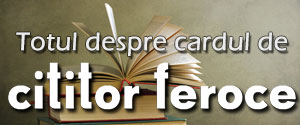 Jorge Edwards este unul dintre cei mai mari scriitori de expresie spaniolă ai zilelor noastre. A primit Premiul Naţional de Literatură (1994) şi Premiul Cervantes (1999), cea mai înaltă distincţie pentru literatură din lumea hispanică.
Jorge Edwards este unul dintre cei mai mari scriitori de expresie spaniolă ai zilelor noastre. A primit Premiul Naţional de Literatură (1994) şi Premiul Cervantes (1999), cea mai înaltă distincţie pentru literatură din lumea hispanică.
Editura Art, Institutul Cervantes şi Ambasada Republicii Chile în România vă invită joi, 5 aprilie, ora 19.00, la Librăria Bastilia (Piaţa Romană nr. 5), pentru a lansa, în prezenţa lui Jorge Edwards, ultimul său volum, Originea lumii.
Noi vă oferim, chiar înainte de lansare, un interviu cu Jorge Edwards pentru a vă introduce în atmosfera cărții și pentru a afla direct de la autor câteva secrete despre scrierea ei. Originea lumii spune o poveste despre gelozie, iar autorul ne va lămuri dacă este sau nu vorba despre propria gelozie, cum a ales să înceapă o carte pornind de la un tablou și de unde vin toate figurile de artiști din paginile romanului.
Andreea Chebac: Why did you chose to begin every chapter of your book „The origin of the World” with a quote from Seneca?
Jorge Edwards: The thinking of Seneca is the reverse of Drs. Illanes anxiety and lack of wisdom. His quotations become ironical and part of the whole text. This is literary appropriation by the way of reading and quoting.
AC: In this book the action starts from a painting – The Origin of the world by Gustave Courget; what inspired you to write the book? The painting itself ?
JE: The painting, the history of the painting, the attitude of the tourists, specially Spanish, who looked at it with surprise and a mixture of shame and delight.
AC: „The Origin of the World” is about jealousy. Is your jealousy described in the book or is it the jealousy of those around you?
JE: It is my jealousy, but also universal jealousy.
AC: In the book there are many artists; is there among them a portrait of a friend of yours?
JE: I have been friend of several Patos Illanes and of many Felipe Díaz in my life. But the characters in the book are pure fiction.
AC: During your life you have been not only a writer, but also a journalist and an ambassador. Which one is your true vocation ?
JE: I am a writer who occasionally has done diplomatic work and who occasionally writes for newspapers.
AC: Which period of your life are you most fond of?
JE: When I have been a wanderer in Chile, in Paris, in the north of Spain. I have done too many things in my life, but I have had a true vocation for idleness.
AC: Did working as an ambassador change your way of being ?
JE: I think not, but I am not completely sure. Any way, I am not particularly impressed by diplomatic work.
AC: Did you ever want to rewrite your books ?
JE: Some times, and now I hope to rewrite one of my novels, „La mujer imaginaria”.
AC: In countries like India or Turkey writers are still censored and persecuted, how should the people from those countries react?
JE: You have to fight for liberty and fight against your own fear. There is no other way.
AC: Many writers from Latin America and from all over the world have chosen to live and work in Paris. Do you think that this city is encouraging art? What is so special about it and what is it that attracts them to it?
JE: To live in Paris or to escape from your province? Paris is not what it used to be for an artist. Sometimes I think that I would have preferred to go to the irish countryside
AC: Can you name 5 books that you like the most? Why?
JE: La Recherche du Temps Perdu, Marcel Proust, Don Quijote, Miguel de Cervantes, The short stories of Jorge Luis Borges, Some short stories of Isak Dinesen, The essays of Montaigne. Reasons: the construction of a self sufficient world – the marvelous and musical language – supreme wisdom, which is, to me, much more than intelligence.







